Why does salt melt ice? We've experimented with ice and salt before and found that salt does make ice melt faster, but do you know why? Salt lowers the freezing point of water which sounds complicated but actually makes a lot of sense once you try it out!
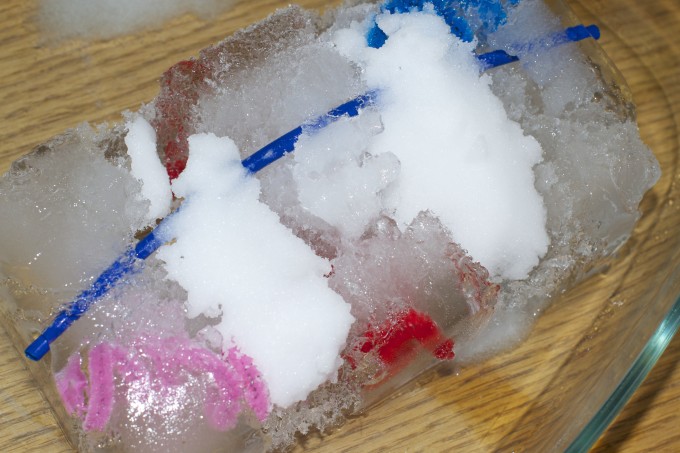
The photo above is just a block of ice with pipe cleaners and straws frozen inside for decoration. You can see that the ice has started to melt where we've added salt.
Why does salt melt ice?
Salt lowers the freezing point of water.
Ice melts faster when salt is added as the salt lowers the freezing point of the water, this is known as freezing point depression. The more salt you add the lower the freezing point.
This interesting feature of salt and ice can be used for lots of fun and easy experiments.
Making ice cream with ice and salt
Did you know you can make ice cream using milk, salt and ice?
This works because as the ice melts heat is absorbed from the surroundings ( the milk mixture ) making it freeze.
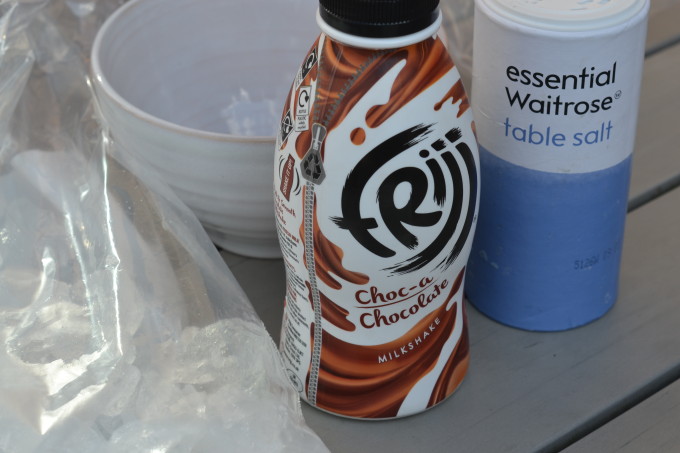
See our full instructions for making ice cream with ice and salt here.
This would also make a great taste investigation. Try adding different flavours to the milk and investigate to see whether a friend can guess what each flavour is. You could even add some strong flavours like chilli or garlic!
How to cool a drink quickly
This investigation uses salt to supercool an ice and water mixture cooling the drink inside very quickly!
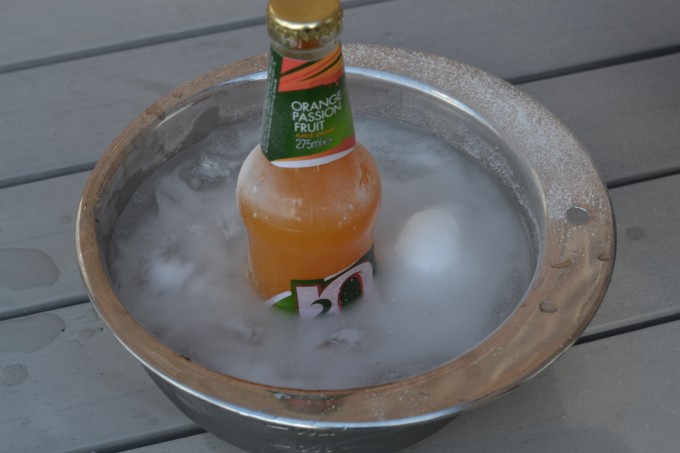
How to make frost
Making frost on a can is easy if you have salt, ice cubes and a tin can. This is our Frosty the Snowman, but you could theme this investigation however you wanted.
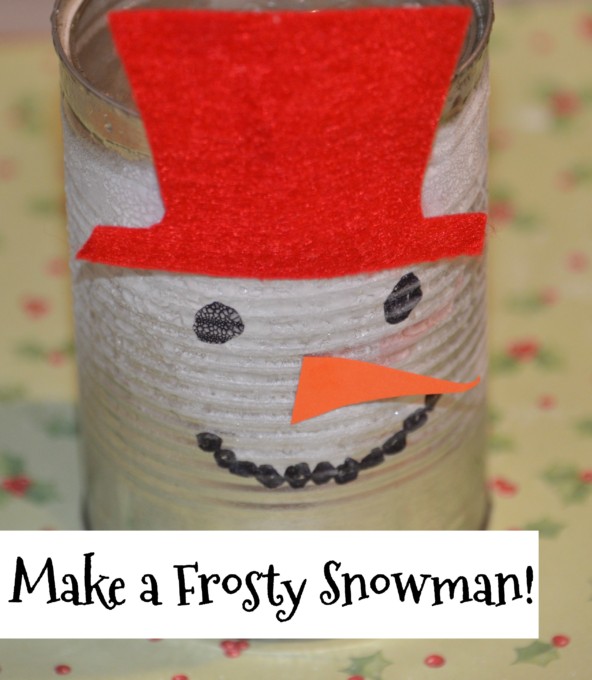
More ice investigations
Try some painting on ice. This is one of my favourite ice activities as ice is a lovely medium to paint over.
Make some ice decorations and hang them outside.
Investigate how to make the best ice hockey puck.
Try some colour mixing and make slushy drinks with ice.
Make some baking soda ice cubes and vinegar and watch them fizz.
Rainy Day Mum investigates salt melting sheets of ice and why we grit roads.
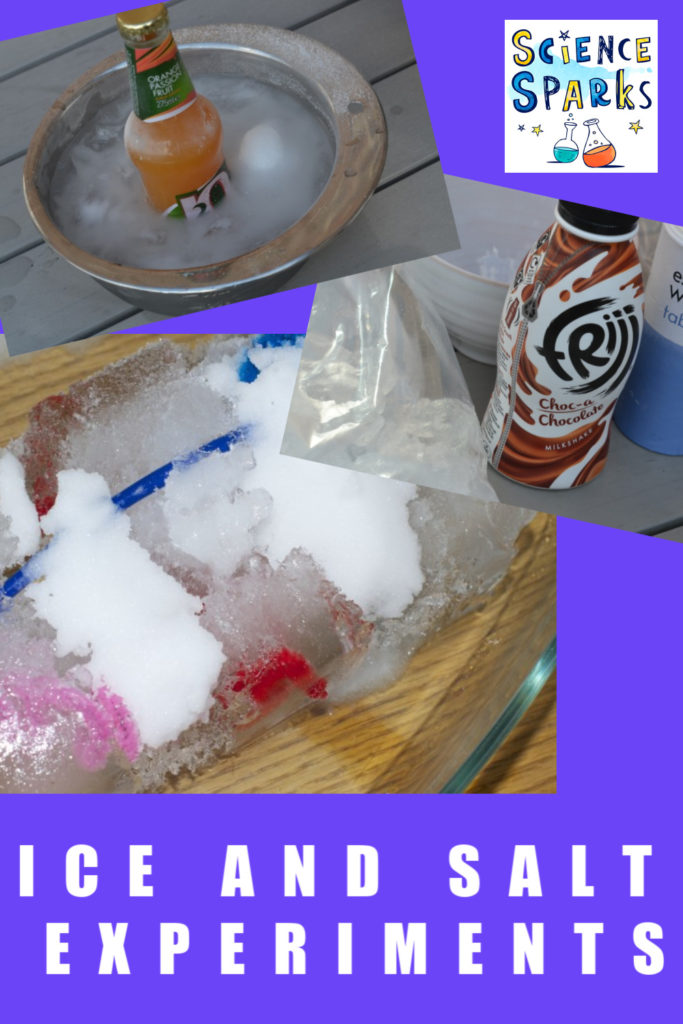
Can you think of any more icy investigations?
Last Updated on January 21, 2021 by Emma Vanstone
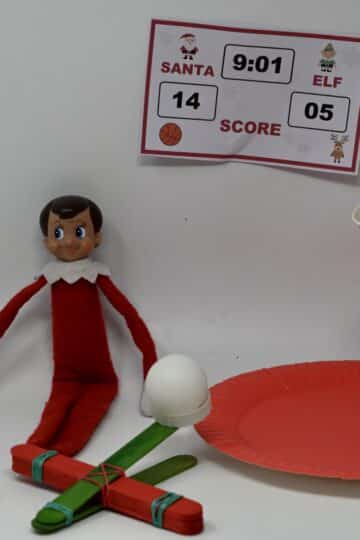



Leave a Reply